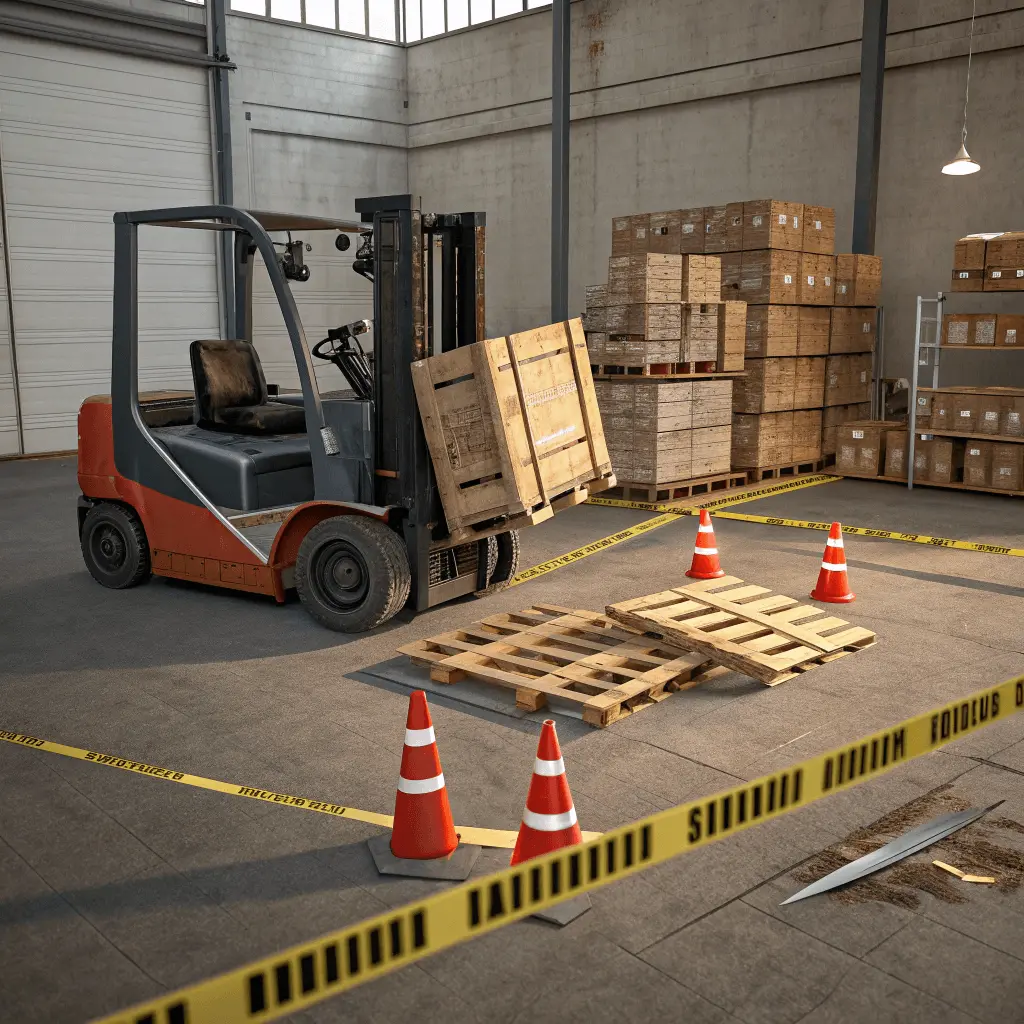Working around forklifts means accidents can happen, and when they do, figuring out who’s at fault gets messy fast. You might think it’s always the operator’s fault, but that’s not necessarily true. Let me break down what you really need to know about liability in these situations.
When You’re Behind the Wheel
Look, if you’re driving a forklift and you mess up—maybe you’re going too fast, texting while driving, or you had a few beers at lunch—yeah, you’re probably going to be the one facing responsibility in a forklift accident. Personal lawsuits, criminal charges, the whole nine yards. It’s not pretty.
But most of the time, your employer’s got your back through workers’ comp insurance. The catch? That protection disappears if you’re doing something completely stupid or way outside what you’re supposed to be doing at work. So don’t test those limits.
What Your Boss Owes You
Your employer can’t just hand you keys to a forklift and say, “Figure it out.” They’ve got legal obligations here. Proper training, well-maintained equipment, and clear safety rules—all of that falls on them. When companies try to save money by skipping these basics, they’re setting themselves up for major legal headaches.
There have been cases where workers got hurt because their company provided maybe two hours of “training” and called it good. Guess who ended up paying the big settlement? Not the worker.
Semi Trucks Make Things Interesting
Here’s something people don’t always think about: sometimes it’s the truck driver who is at fault, not the forklift operator. Loading docks are crazy busy places, and when a semi driver backs up without looking or parks crooked, accidents happen.
Truck drivers have their own rules to follow:
- They need to back up slowly and carefully
- Communication with dock workers isn’t optional
- Proper positioning matters
- They can’t just assume the coast is clear
When they blow it, their company’s insurance picks up the tab, not yours. You might be the one who gets hurt, but the fault lands somewhere else entirely.
It Gets Even More Complicated
Don’t even get started on all the other players involved. Equipment manufacturers, maintenance crews, other contractors—any of these folks can share the blame. Maybe your forklift’s steering goes out because of a factory defect. Maybe the maintenance guy forgot to tighten something important last week.
This is why accident investigations take forever. Everyone’s pointing fingers, and honestly, sometimes multiple people really are at fault.
Cover Your Bases (Both Workers and Bosses)
Here’s the best advice: document everything. Seriously, everything. Training records, maintenance logs, safety meetings—it all matters when lawyers get involved.
If you’re operating equipment, show up to those boring safety meetings and follow the rules, even when your supervisor’s not watching. If you’re running a company, don’t cheap out on safety programs. That money you save today will cost you ten times more in lawsuits tomorrow.
Ultimately…
Nobody wants to deal with liability issues, but ignoring them won’t make them disappear. Forklift accidents can ruin lives and bankrupt businesses. Sometimes it’s the operator’s fault, sometimes it’s the company, sometimes it’s the truck driver who wasn’t paying attention.
Your best bet? Take safety seriously from day one. Follow the rules, maintain your equipment, and document what you’re doing. When everyone actually does their job right, these accidents become a lot less likely. And when they do happen, you’ll have a much better chance of coming out okay on the legal side of things.
The bottom line is this: accidents are expensive and dangerous for everyone involved. A little prevention goes a long way toward keeping yourself out of court.
